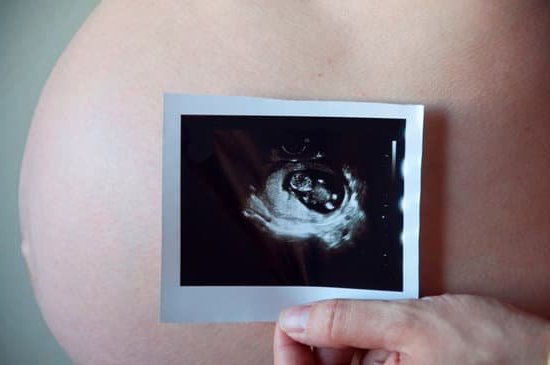Pregnancy is a miraculous journey marked by various physical and emotional changes. From the moment conception occurs, the body undergoes incredible transformations to support the growth of new life. As women navigate through this unique experience, they often pay close attention to early signs that may indicate pregnancy. One question that frequently arises is: are hiccups a sign of pregnancy?
Understanding the significance of early pregnancy symptoms is crucial for women who are trying to conceive or suspect they may be pregnant. Recognizing these signs not only helps in managing any potential discomfort but also allows for timely prenatal care. While common symptoms like morning sickness and fatigue are well-known, lesser-discussed signs such as hiccups can also provide valuable insights into one’s reproductive health.
Hiccups, a seemingly innocuous bodily reflex, can spark curiosity when experienced during early pregnancy. In this section, we will delve into the physiology of hiccups, explore how pregnancy impacts the body, and examine whether hiccups could indeed be a sign of gestation. By shedding light on this lesser-known symptom, we aim to empower individuals with knowledge about their bodies, fostering a deeper understanding of the intricate processes at play during this remarkable period in a woman’s life.
Understanding Hiccups
Hiccups are a common and usually harmless occurrence that many people experience at some point in their lives. These sudden, involuntary contractions of the diaphragm muscle can be triggered by various factors such as eating too quickly, consuming carbonated beverages, or feeling anxious.
While hiccups are typically temporary and resolve on their own, they can sometimes persist for longer periods or occur more frequently. Understanding the mechanism behind hiccups can help shed light on why they happen and how they may relate to other bodily changes.
- Hiccups are caused by a sudden contraction of the diaphragm muscle, followed by the quick closure of the vocal cords, which results in that characteristic “hic” sound.
- Common triggers for hiccups include eating spicy foods, drinking alcohol, sudden temperature changes, stress or excitement.
- It is often believed that hiccups serve no real purpose and are simply a natural reaction of the body’s respiratory system.
During pregnancy, due to hormonal fluctuations and physical changes in the body, women may experience a heightened sensitivity to certain symptoms and sensations. While hiccups themselves are not considered a direct sign of pregnancy, some expectant mothers have reported experiencing them more frequently than usual during early stages of pregnancy. This could be attributed to the hormonal shifts affecting the body’s digestive processes or increased pressure on the diaphragm due to the growing uterus.
- The hormonal changes during pregnancy can contribute to relaxation of muscles throughout the body, including those involved in respiration.
- As pregnancy progresses and the uterus expands, it can put pressure on surrounding organs such as the diaphragm, potentially leading to increased incidences of hiccups.
- It is important to note that hiccups alone should not be taken as a definitive indicator of pregnancy; other common early symptoms like missed periods or fatigue should also be considered for a more accurate assessment.
The Physiology of Pregnancy
During pregnancy, a woman’s body goes through significant changes to support the growth and development of the baby. These changes are not limited to physical ones but also include hormonal shifts that can lead to various symptoms. Understanding the physiology of pregnancy is essential in recognizing the signs and symptoms that are hiccups a sign of pregnancy
Hormonal Changes
One of the key factors in how pregnancy affects the body is the surge in hormones, such as human chorionic gonadotropin (hCG) and progesterone. These hormones play crucial roles in maintaining a healthy pregnancy but can also result in various symptoms like nausea, fatigue, and breast tenderness. The fluctuation in hormone levels can also impact other bodily functions, possibly leading to less common signs like hiccups.
Physical Adjustments
Apart from hormonal changes, pregnancy also brings about physical adjustments to accommodate the growing fetus. As the uterus expands, it puts pressure on surrounding organs like the diaphragm, which is responsible for breathing movements. This pressure can occasionally cause spasms in the diaphragm, resulting in hiccups. The combination of hormonal and physical changes during pregnancy can contribute to an array of symptoms, including hiccups as a potential sign.
Recognizing how pregnancy impacts the body physiologically is crucial for understanding why certain symptoms manifest during this time. While hiccups alone may not definitively indicate pregnancy, they can be considered alongside other common signs when determining whether a woman may be pregnant. Being aware of these physiological aspects are hiccups a sign of pregnancy, helps individuals navigate this transformative phase with better knowledge and preparation.
Common Signs of Pregnancy
During the early stages of pregnancy, many women experience a myriad of symptoms that indicate a possible conception. Some common signs include nausea, commonly referred to as morning sickness, fatigue, and breast tenderness. These symptoms are often the first indicators that lead women to suspect they may be pregnant. While these signs can vary in intensity from woman to woman, experiencing them can prompt individuals to take a closer look at their potential pregnancy status.
Nausea is one of the most well-known pregnancy symptoms and is often associated with the early stages of gestation. It can manifest at any time of the day, not just in the morning, and may be triggered by various scents or foods. Nausea during pregnancy typically peaks around 9 weeks but can persist through the entire duration of pregnancy for some women.
Along with nausea, many pregnant individuals also report feeling fatigued more easily than usual. The hormonal changes that occur during pregnancy can result in increased tiredness and a need for more rest.
Another typical sign of early pregnancy is breast tenderness or sensitivity. This symptom is characterized by soreness, swelling, or tingling in the breasts – especially around the nipples. The hormonal fluctuations in the body lead to increased blood flow and changes in breast tissue that cause discomfort for many pregnant women. Breast tenderness is usually one of the first noticeable signs after a missed period and can serve as an indicator for those who are wondering if they might be pregnant.
| Pregnancy Symptom | Description |
|---|---|
| Nausea | Can manifest at any time of day, triggered by scents or foods. |
| Fatigue | Increased tiredness due to hormonal changes during pregnancy. |
| Breast Tenderness | Soreness, swelling, or tingling in breasts – noticeable after a missed period. |
Are Hiccups a Sign of Pregnancy? Exploring the Connection Between Hiccups and Early Pregnancy
During early pregnancy, many women may experience a variety of symptoms that can sometimes be confusing or unexpected. One such symptom that often raises questions is hiccups. Hiccups are involuntary contractions of the diaphragm muscles followed by sudden closure of the vocal cords, resulting in a distinct sound. While hiccups are common and usually harmless, they can also be a source of curiosity for those wondering if they could be linked to pregnancy.
To shed some light on the potential connection between hiccups and pregnancy, let’s delve into the underlying physiology. When a woman becomes pregnant, hormonal changes occur in her body to support the growth and development of the fetus. These hormonal shifts can impact various systems, including the gastrointestinal tract and respiratory system. It is believed that these changes could contribute to an increase in hiccups for some pregnant individuals.
Here are some key points to consider when exploring whether hiccups could be a sign of pregnancy:
- Hormonal fluctuations: Changes in hormone levels during early pregnancy may affect muscle function, potentially leading to increased incidences of hiccups.
- Increased progesterone: The hormone progesterone rises significantly during pregnancy, which can relax smooth muscles, including those in the diaphragm.
- Pressure on the diaphragm: As the uterus expands with the growing baby, it can put pressure on nearby organs like the stomach and diaphragm, possibly triggering more frequent hiccups.
Overall, while hiccups alone may not definitively indicate pregnancy, they can be one piece of a larger puzzle when considering potential early signs. If you are experiencing hiccups along with other common symptoms like nausea, fatigue, or breast tenderness and suspect you might be pregnant, it’s recommended to take a pregnancy test for confirmation.
Remember that every person’s experience with pregnancy symptoms can vary, so it’s essential to consult with a healthcare provider for personalized guidance and care.
Other Uncommon Pregnancy Symptoms
During pregnancy, the body undergoes a multitude of changes, some of which can result in lesser-known symptoms that may not always be immediately associated with gestation. While many individuals are aware of common signs like morning sickness and fatigue, there are other, less talked about symptoms that can also indicate pregnancy. Here, we will delve into these uncommon pregnancy indicators, shedding light on the possible reasons behind them.
Food Aversions
One intriguing but lesser-known sign of pregnancy is experiencing food aversions. During early pregnancy, some women may find themselves having strong distaste or even nausea at the thought or smell of certain foods they once enjoyed.
This sudden change in preference can be attributed to hormonal changes in the body as it adjusts to support the developing fetus. It is essential for expectant mothers to listen to their bodies and honor their food aversions to ensure both their own and their baby’s well-being.
Increased Sense of Smell
Another curious symptom that
While not as commonly discussed as nausea or fatigue, food aversions, and an increased sense of smell are important indicators that should not be overlooked when considering the possibility of pregnancy. Paying attention to these lesser-known symptoms alongside more prevalent ones can provide a comprehensive picture for those who suspect they may be expecting. By being aware of such uncommon signs, individuals can better understand the nuances of early pregnancy and seek appropriate care and support as needed.
When to Take a Pregnancy Test
When considering whether hiccups could be a sign of pregnancy, it is essential to understand the timing and reliability of taking a pregnancy test. Most home pregnancy tests claim to provide accurate results as early as the first day of a missed period.
However, for the most reliable result, it is generally recommended to wait at least a week after your missed period before taking the test. This allows for enough time for the hormone levels to rise sufficiently to be detected by the test.
If you suspect that you may be pregnant due to symptoms like hiccups along with other signs such as nausea, fatigue, or breast tenderness, it is best to take a pregnancy test in the morning when your urine is more concentrated. This increases the likelihood of obtaining an accurate result. It’s important to follow the manufacturer’s instructions on how to properly conduct the test and interpret the results.
While hiccups alone may not definitively indicate pregnancy, especially in the absence of other typical symptoms, if you are experiencing persistent hiccups along with other common signs of early pregnancy, it might be worth considering taking a pregnancy test. Remember that every woman’s experience with pregnancy symptoms can vary, so it is crucial to listen to your body and consult with a healthcare provider if you have concerns about potential pregnancy.
| Timing | Recommendation |
|---|---|
| After missed period | Wait at least a week for reliable results |
| Morning testing | Take the test in the morning for more concentrated urine |
| Persistent symptoms | If experiencing hiccups and other signs, consider taking a test |
Conclusion
In conclusion, early pregnancy symptoms play a crucial role in helping individuals detect potential changes in their bodies. While some signs like nausea, fatigue, and breast tenderness are well-known indicators of pregnancy, other symptoms like hiccups may not be as commonly recognized. Understanding the physiology of pregnancy can shed light on how the body reacts to the hormonal changes during this crucial time.
Hiccups, although not typically associated with pregnancy, can occasionally occur as a result of the hormonal shifts and pressure on the diaphragm experienced during this period. It is essential to pay attention to these subtle changes and consider them alongside other symptoms when assessing the possibility of being pregnant.
Alongside familiar signs of early pregnancy, such as food aversions and an increased sense of smell, hiccups can provide additional clues for those trying to conceive or wondering if they may be pregnant.
Overall, staying informed about both common and lesser-known pregnancy symptoms is key to early detection and care. It is advisable for individuals who suspect they might be pregnant to consult with a healthcare provider and consider taking a pregnancy test to confirm their suspicions. By being aware of all potential signs – including unexpected ones like hiccups – individuals can better navigate their journey towards parenthood with knowledge and understanding.
Frequently Asked Questions
Is Hiccup a Sign of Early Pregnancy?
Hiccups are not typically considered a common or reliable sign of early pregnancy. While some women may experience more frequent hiccups in early pregnancy due to hormonal changes, it is not a definitive indicator.
How Many Weeks Pregnant Do You Get Hiccups?
The occurrence of hiccups during pregnancy can vary from woman to woman. Some may notice an increase in hiccups early on, while others may not experience them at all. There is no specific number of weeks pregnant at which hiccups are expected to occur.
What Are Very Early Signs of Being Pregnant?
Very early signs of being pregnant can include missed periods, fatigue, nausea or morning sickness, breast tenderness, increased urination, and heightened sense of smell. These symptoms can vary in intensity and duration for each woman. Testing for pregnancy with a home pregnancy test is the most accurate way to confirm early signs of pregnancy.

Welcome to my fertility blog. This is a space where I will be sharing my experiences as I navigate through the world of fertility treatments, as well as provide information and resources about fertility and pregnancy.





